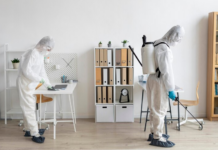Commercial chillers reduce air or water temperature, making a space more comfortable and helping serve the customers better. But choosing one can be tricky with so many sizes, shapes and configurations available. You could make a costly mistake if you don’t invest significant time in research before investing in a chiller. So, consider the factors below to select the right one for your business needs.
1. Size
You don’t want a chiller that’s too small or too big. If the size is too small, it won’t result in effective cooling; if it’s too large, the equipment may fail prematurely.
Since industrial chillers come in various sizes, it is best to calculate the sizing needs for your application according to industry standards.
Medical chillers usually are 12.5 and 15 tons or 7.5 and 5 tons in weight and are effective for cooling multiple medical devices. Welding chillers must have a 1-ton capacity of 100 KVA. For winery applications, 2-ton chillers are sufficient. Hydroponic chillers range between 1.5 and 100 tons, while flower chillers vary between 2 and 100 tons.
2. Application
The medical applications of a chiller include PET scans, radiotherapy, blood bank refrigeration and laboratory operations.
Food processing chillers have a wide range of applications. Based on specific industrial settings, you can choose from winery glycol chillers, yoghurt machine chillers, bakery chillers and dairy milk chillers.
You can use metal finishing chillers for anodising, furnace cooling, die casting, or powder coating.
You can benefit from explosion-proof chillers
if your work environment involves interaction with flammable vapours and gases.
3. Type
Commercial chillers can be classified into five types. They are:
- Water-cooled chillers: Water chillers are quieter and work well in small-scale and commercial-scale facilities.
- Air-cooled chillers: Air-cooled coolers are cheaper than water-cooled chillers. But these chillers release a lot of heat and can be fit in facilities where heat is not a concern.
- Portable chillers: These chillers have a system’s basic components within a single footprint.
- Central chillers: Central chillers can cool several processes and have stationary or portable configurations. Also, these can be both water or air-cooled.
- Stationary chillers: Stationary chillers don’t have a pump or tank. These are stand-alone units connected to a pump or reservoir to function.
4. Price
The price of industrial chillers may range from hundreds to thousands of dollars. Water chillers tend to be more expensive than air-cooled chillers. Moreover, each manufacturer designs the appliance uniquely, which is also a determinant of the price. So, before buying, carefully weigh your options and compare the prices.
5. Manufacturer
You must research the manufacturers and their policies to get the best deal. Make a list of a few questions before selecting your product.
- Do they offer a warranty?
- What is the expected turnaround time?
- How are the new products tested?
- Do they offer other tools and accessories with the product?
- How long has the manufacturer been operating in the market?
- Has the manufacturer used proprietary components in the product?
Once you have answers, you will learn if the company is easy to do business with. A reliable manufacturer will deal with you directly, cutting the involvement of any middleman, thereby eliminating confusion and helping you save time and money.
When looking for commercial chillers, try to choose brands that provide high-quality products and excellent customer service. Picking the right cooling solution can help you increase productivity and efficiency and reduce costs. Also, you can have peace of mind when your needs are taken care of by well-trained individuals who can design and install the system following all the safety measures.









